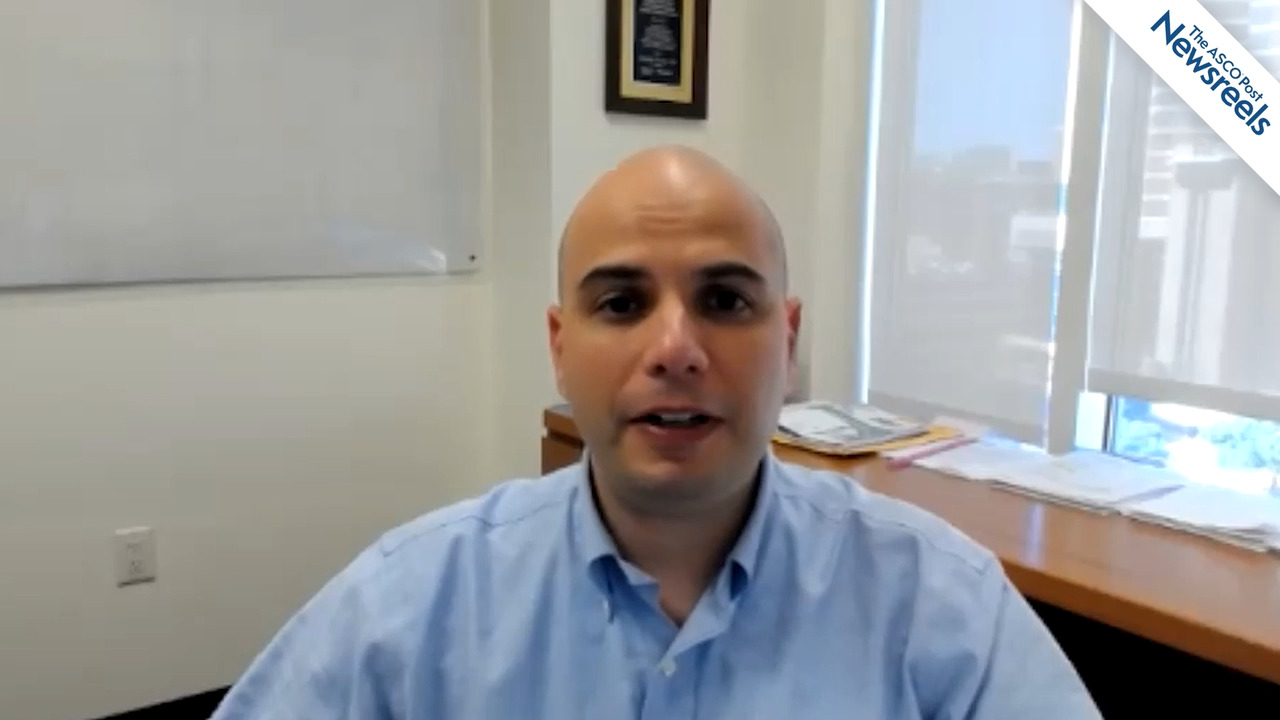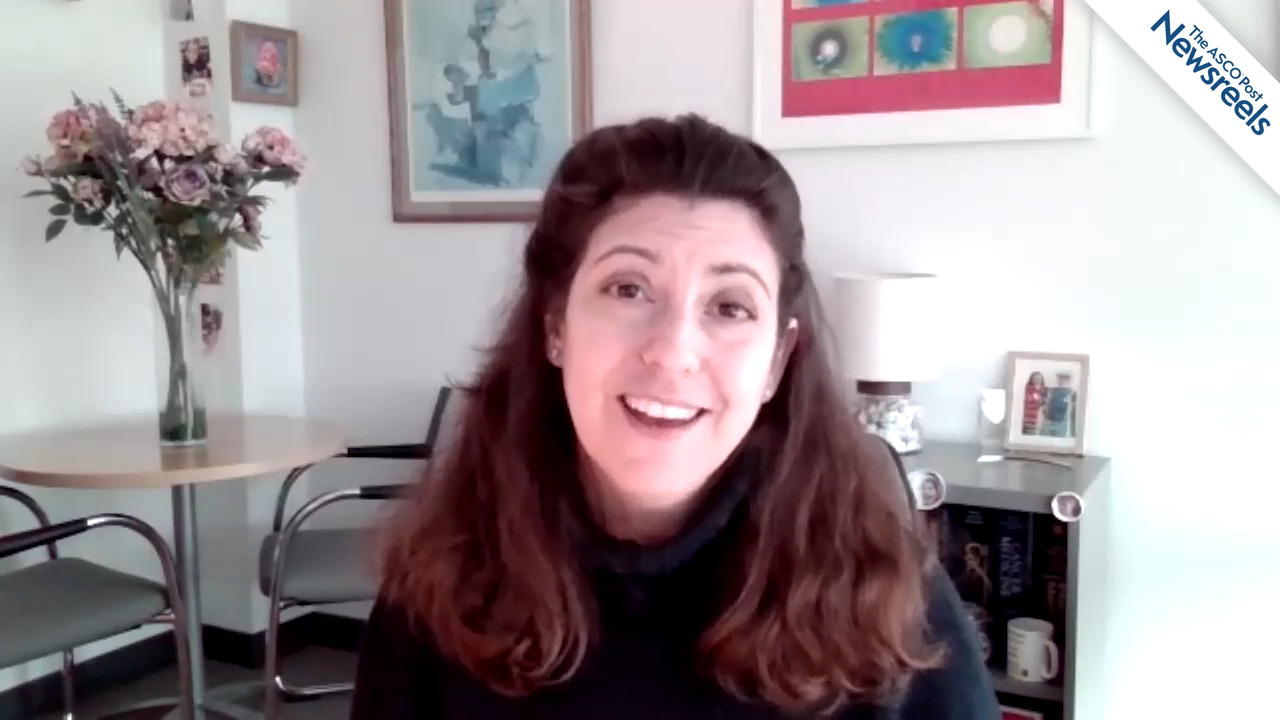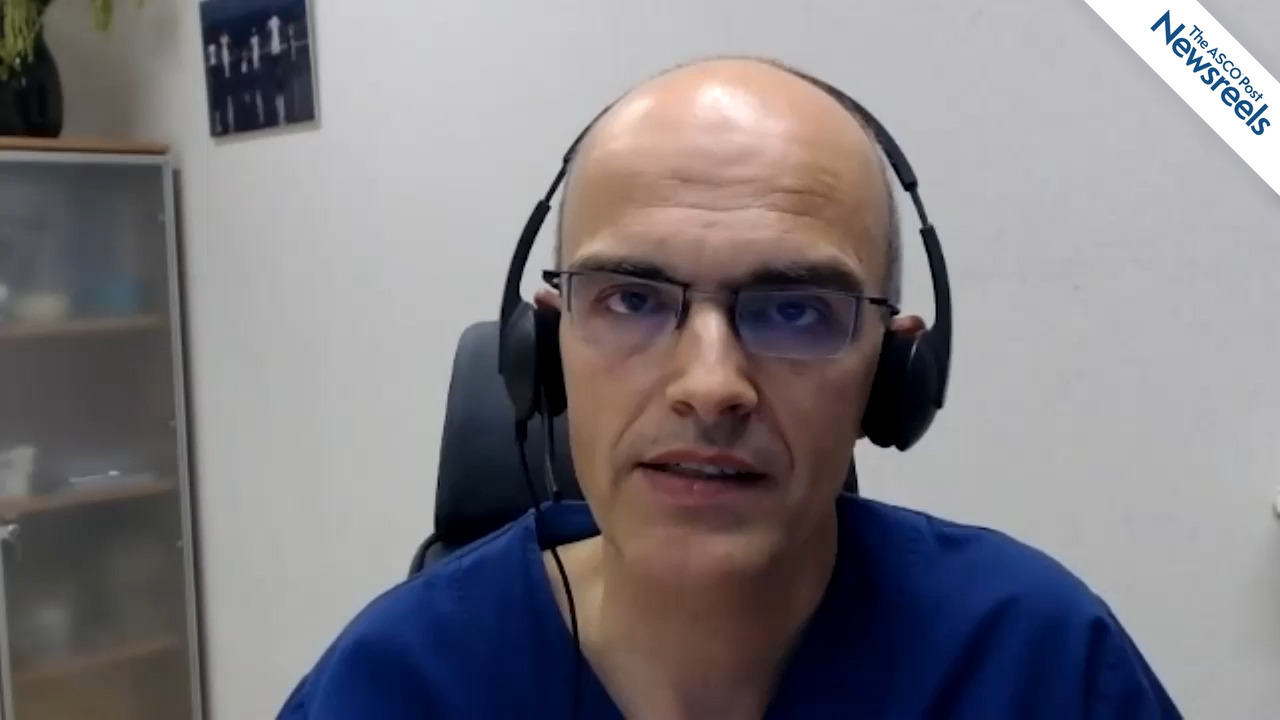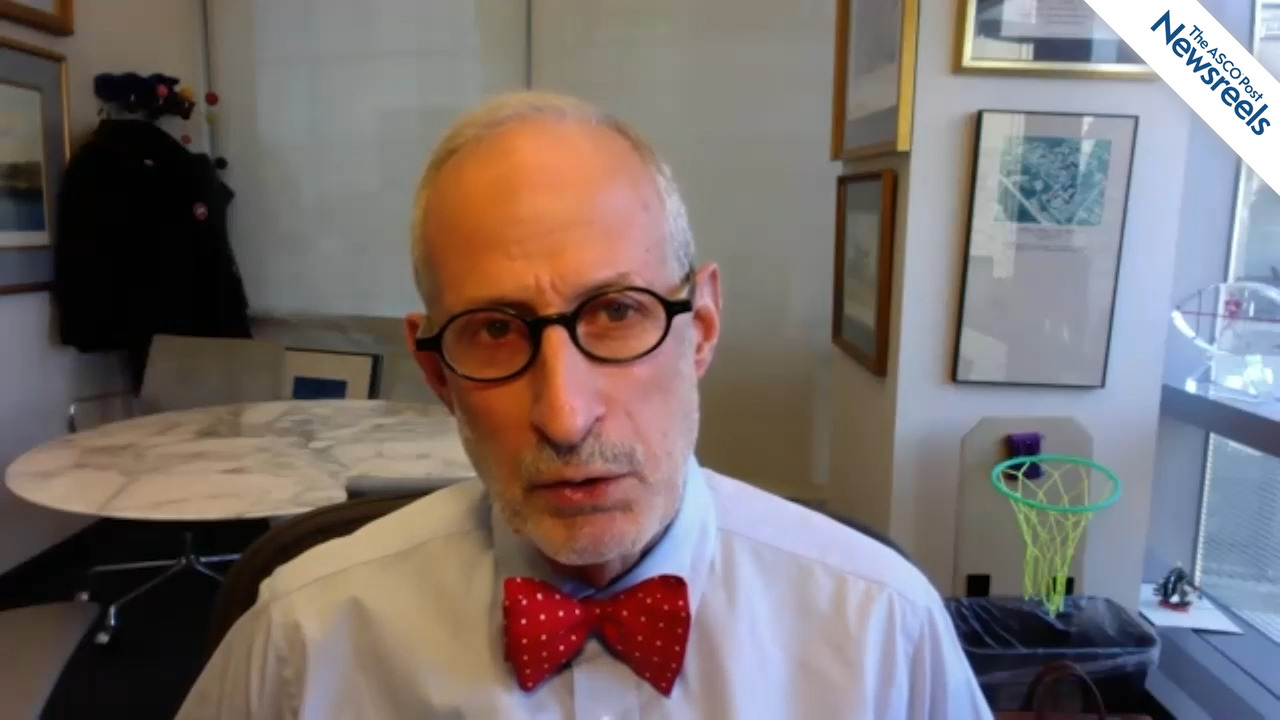Sean Khozin, MD, MPH, on Delivering Precision Cancer Care in the Era of Digital Medicine
SITC 2021
Sean Khozin, MD, MPH, of CancerLinQ, discusses the therapeutic advances that have made cancer care more targeted, even as real-world patient outcomes lag behind those reported in clinical trials. Dr. Khozin makes the case for the use of digital decision support tools to advance precision at the point of care.
The ASCO Post Staff
Mehmet Altan, MD, of The University of Texas MD Anderson Cancer Center, discusses findings from a phase Ib dose-escalation study, which showed early evidence of activity for NKTR-255, an investigational IL-15 receptor agonist, plus cetuximab in patients with solid tumors. Treatment appeared to lead to expansion and proliferation of NK and CD8+ cells (Abstract 957).
The ASCO Post Staff
Kim A. Reiss, MD, of the University of Pennsylvania, discusses results of a phase I trial of a CAR-M engineered macrophage cancer therapy, known as CT-0508, for patients with solid tumors that overexpress HER2. CAR-M, designed to exploit the natural role of macrophages to initiate an antitumor response, is currently under study at multiple clinical sites (Abstract 951).
The ASCO Post Staff
Hans Wildiers, MD, of University Hospitals Leuven, discusses the final results from the phase IIb AIPAC study, which suggested that eftilagimod added to paclitaxel may be of benefit to patients older than 65 years with hormone receptor–positive, HER2-negative metastatic breast cancer after endocrine-based therapy. Eftilagimod, which is a first-in-class antigen presenting cell activator, appeared to increase circulating CD4/CD8 T cells, which correlated to improved overall survival (Abstract 948).
The ASCO Post Staff
Jeffrey Weber, MD, PhD, of NYU Langone Medical Center, offers his perspective on the impact of the COVID-19 pandemic on oncology care and cancer clinical trials, as clinicians strive to provide optimal treatment to patients while reducing their risk of contracting the coronavirus. The steep decline in trial enrollment has recovered, with many of the changes in how research was conducted as a result of the pandemic still in place and improving the process going forward.
The ASCO Post Staff
Stephanie T. Schmidt, PhD, of The University of Texas MD Anderson Cancer Center, discusses the first integrated examination of the immunomodulatory effects of neoadjuvant chemotherapy, nivolumab, and nivolumab plus chemotherapy in resected non–small cell lung cancer (Abstract 962).





